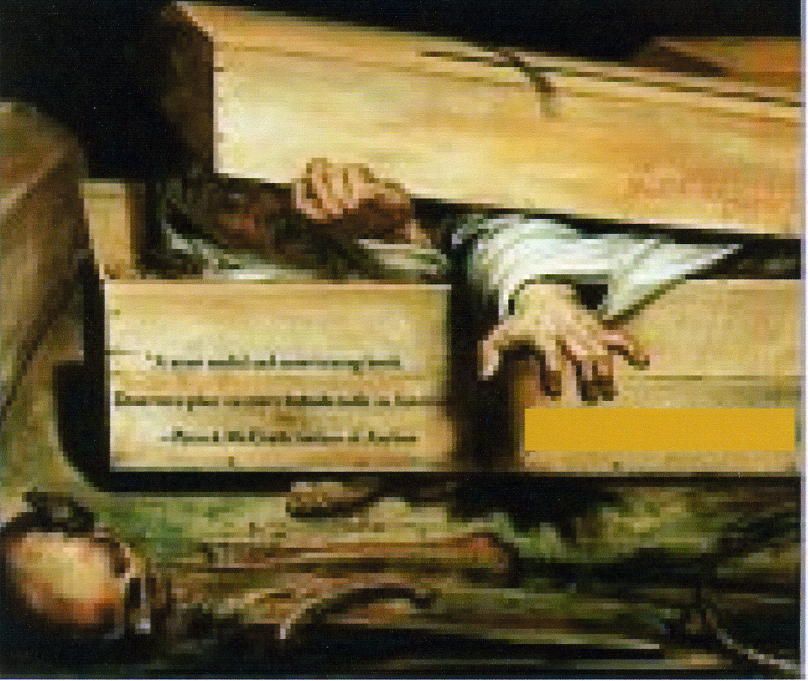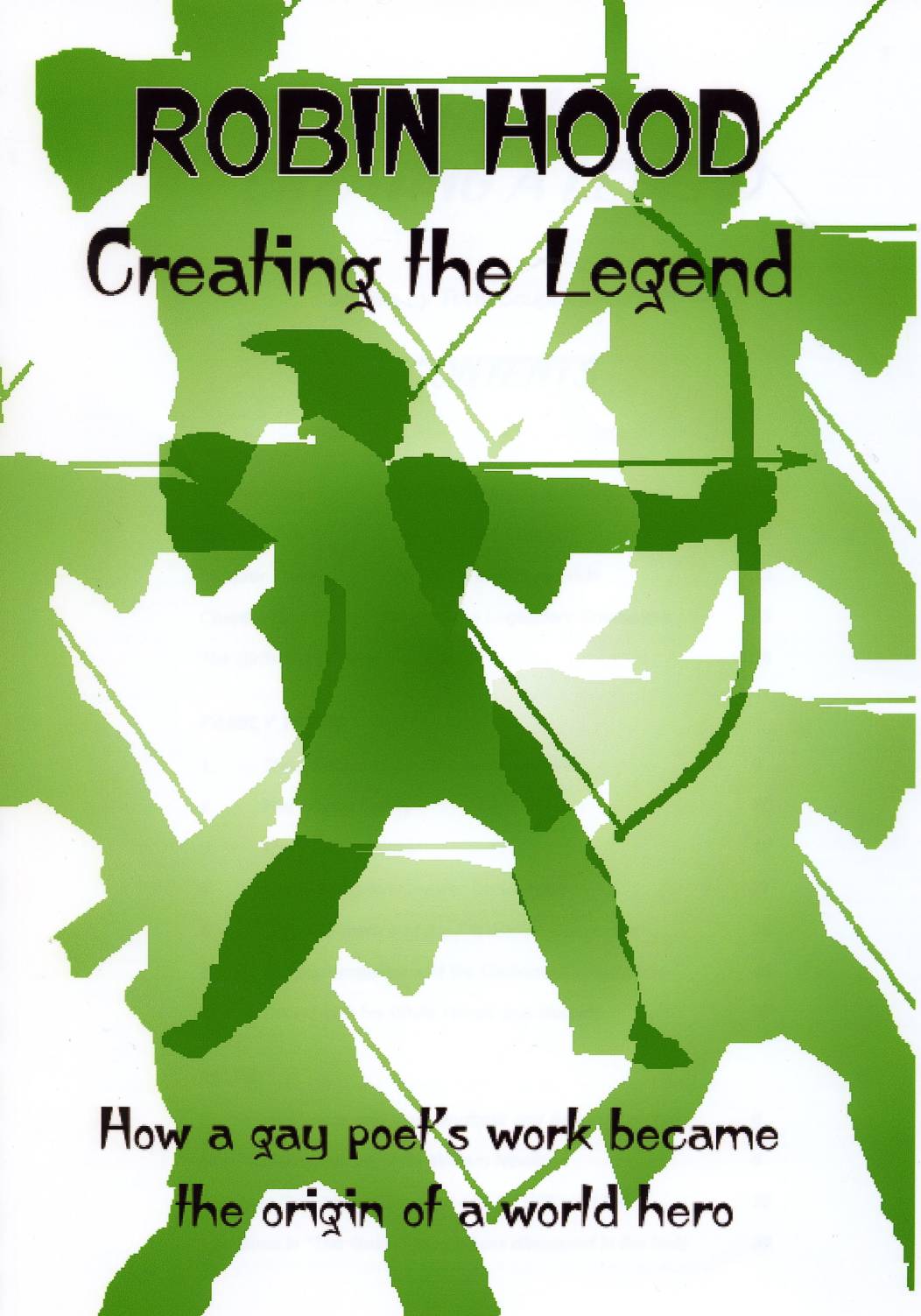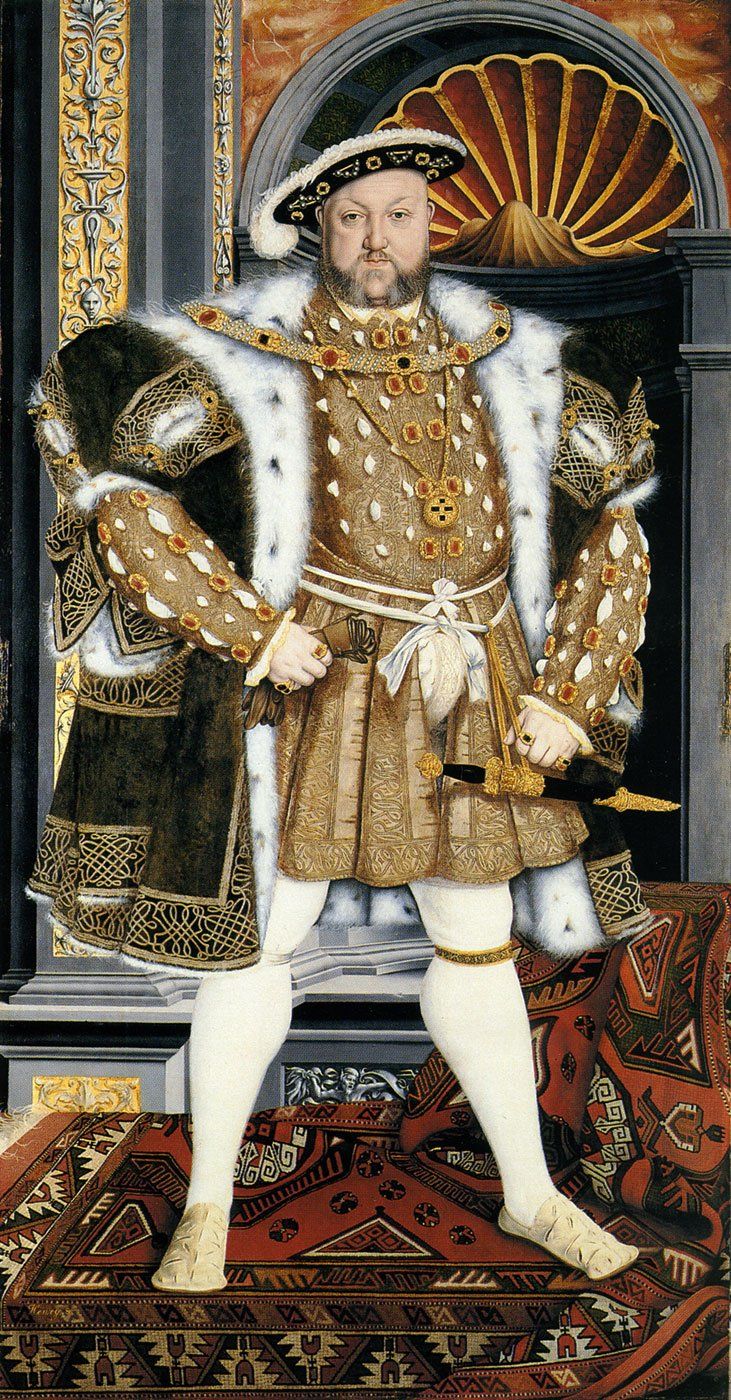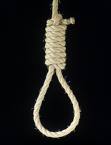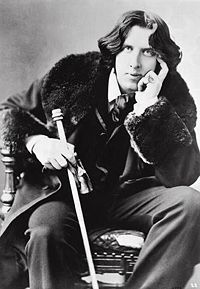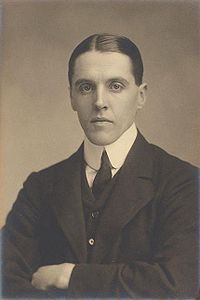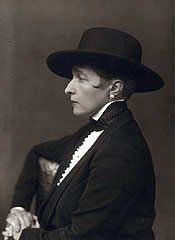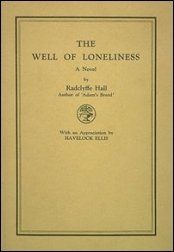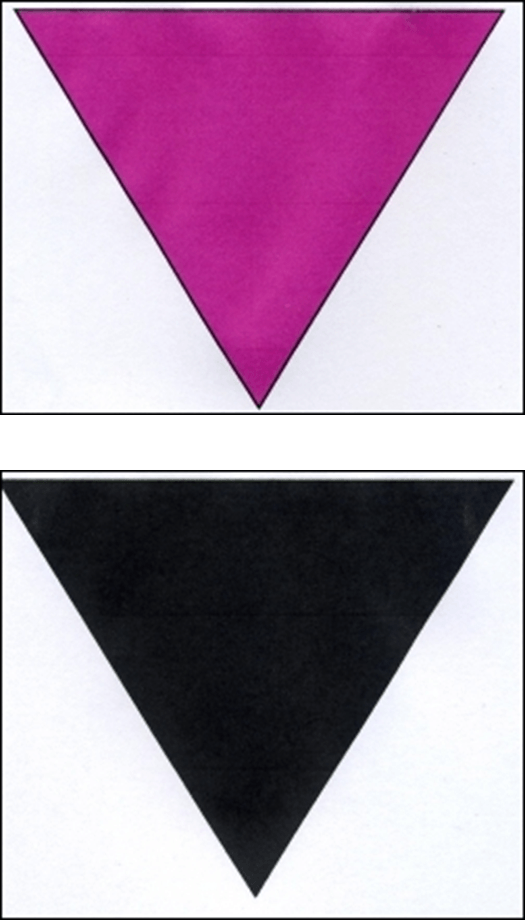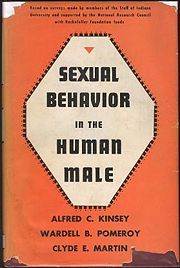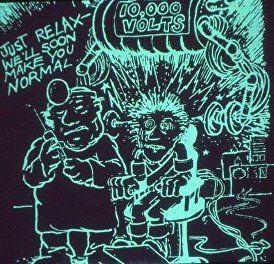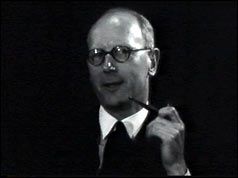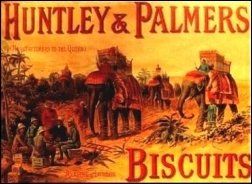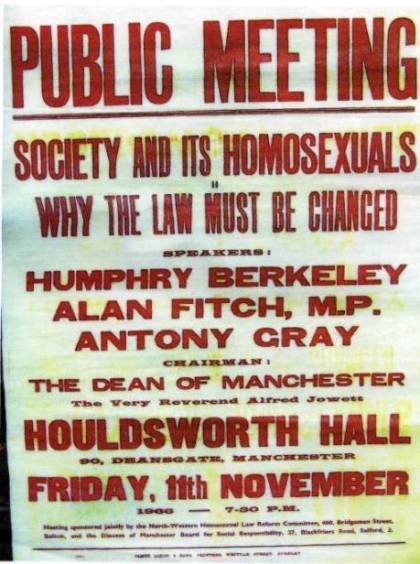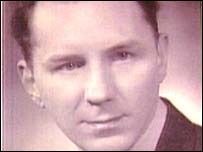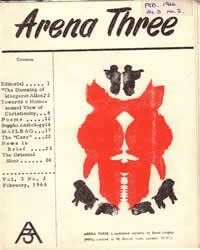13TH CENTURY
14TH CENTURY
On the other hand, in the 14th Century, Sir John Clanvowe got married - to a man. The ceremony was called "Wedded Brotherhood" and was approved by the Catholic Church. The man was Sir William Neville, who became Constable of Nottingham Castle.
Sir John Clanvowe was the originator of the Robin Hood legend. Local historian Tony Bilton's book "Creating the Legend" describes all of this,.
Sir William Neville was Constable of Nottingham Castle between 1381 and 1388 and a Knight of the chamber to Richard II – Sir John Clanvowe was his friend. They fought alongside each other in the Hundred years war as well as in a north African campaign. Both men were close friends to Geoffrey Chaucer.
Sir John Clanvowe was an extraordinary man. He was a renowned soldier, crusader, justice and overseas diplomat, as well as an author and poet. In 1391 the two men were on a mission to Constantinople. Sadly Sir John Clanvowe died on 17th October 1391. Following Clanvowe's death, Neville refused to take food and died two days later.
The two men had a joint tomb slab (below left) and the manner of their burial speaks volumes. The tomb slab shows their helms facing each other as though kissing, and their shields overlapping. On the shields their coats of arms are impaled each shield shows half the coats of arms of each man, a device usually reserved for the depiction of the arms of husband and wife. Their tombstone survives in the Archaeological Museum of Constantinople. It was discovered in 1913. It is now widely accepted that these two extraordinary men were gay.
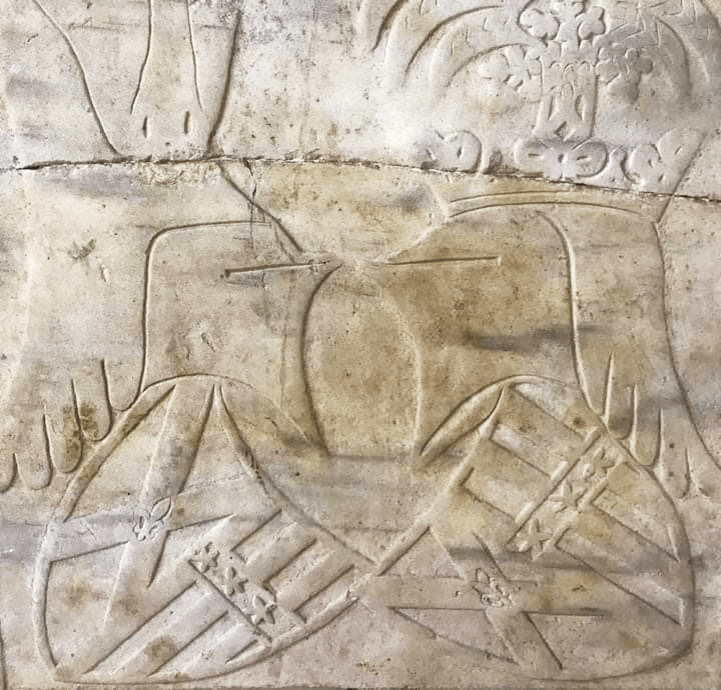

16TH CENTURY
In 1533 Henry VIII introduced the Buggery Law.
Offenders being hereof convicted by verdict confession or outlawry shall suffer such pains of death and losses and penalties of their good chattels debts lands tenements and hereditaments.
The section in italics is what really interested Henry.
He used the law aggressively in order to accumulate the land, the buildings and the money.
19TH CENTURY
In 1806 there were more executions for sodomy than for murder.
In 1836 the last British execution for sodomy took place - though the law was not changed until 1861. MP Chris Bryant's book "James and John" details the story of James Pratt and John Smith, who were the last people to be hanged under this law.
1885 The offence of "Gross indecency between males" was introduced to cover all gay sex other than anal intercourse. Lesbianism is not mentioned.
"Any male person who, in public or private, commits, or is a party to the commission of, or procures, or attempts to procure the commission by any male person of, any act of gross indecency shall be guilty of misdemeanour, and being convicted shall be liable at the discretion of the Court to be imprisoned for any term not exceeding two years, with or without hard labour."
This was known as the Labouchere Amendment after the MP Henry Du Pré Labouchère who introduced it.
in 1895 Oscar Wilde became the most prominent victim of Labouchère's amendment. Wilde spent two years in prison at hard labour.
The law was often described as "the blackmailer's charter". Many other gay men shared Wilde's fate, while countless thousands silently suffered extortion and the mental torture brought by fear of exposure. Many chose suicide over arrest and exposure.
The Labouchère amendment became a device for perpetrating fear and hatred of male homosexuality for more than 80 years.
20TH CENTURY 1920s
In 1921 MP Frederick Macquisten argued that lesbian acts should be criminalized. He said:
"These moral weaknesses date back to
the very origin of history, and when they grow and become prevalent in any nation or in any country, it is the beginning of the nation's downfall. The falling away of feminine morality was to a large extent the cause of the destruction of the early Grecian civilisation”.
This proposal failed and Lord Birkenhead (pictured on the right) the then Lord Chancellor argued that 999 women out of a thousand had "never even heard a whisper of these practices”. The gist of his argument being "don't give women ideas".
Marguerite Radclyffe-Hall was an English poet and author of eight novels, including the lesbian classic The Well of Loneliness.
The Well of Loneliness became the target of a campaign by the editor of the Sunday Express newspaper, who wrote "I would rather give a healthy boy or a healthy girl a phial of prussic acid than this novel." He said this is "A Book That Must Be Suppressed"
It was banned in 1928, when a British court judged it obscene because it defended "unnatural practices between women", but publicity over The Well of Loneliness's legal battles increased the visibility of lesbians, though Its role in promoting images of lesbians as "mannish" or cross-dressed women has also been controversial.
20TH CENTURY 1940s
Nazi Germany
It is estimated that over 50,000 men were sent to the concentration camps because they were gay. To read more about gays and lesbians in Nazi Germany, click on the Pink Triangle.
Gay prisoners were forced to wear a pink triangle and lesbians a black triangle.
After the war, the pink triangle became a symbol of defiance and freedom amongst German gay groups. In the 1970s it began to be used by the wider LGBT community.
During the Second World War most people in the UK had more important things to worry about that people's sexual orientation and for many gays and lesbians things became a little easier. This was soon to change when the war ended.
The Kinsey Report on male sexuality was published in 1948.
It was the first major report on this subject.
Amongst other statistics, it found that the percentage of men who had sexual experiences at least once in their adult life with another man was 37%.
One possible explanation for this figure, which surprises many people, is the large number of people who are bisexual and bisexuality is often hidden or "erased".
Another explanation was offered by comedian Graham Norton, who asked "what is the difference between a heterosexual man and a bisexual man?" The answer being "three pints of beer".
20TH CENTURY 1950s
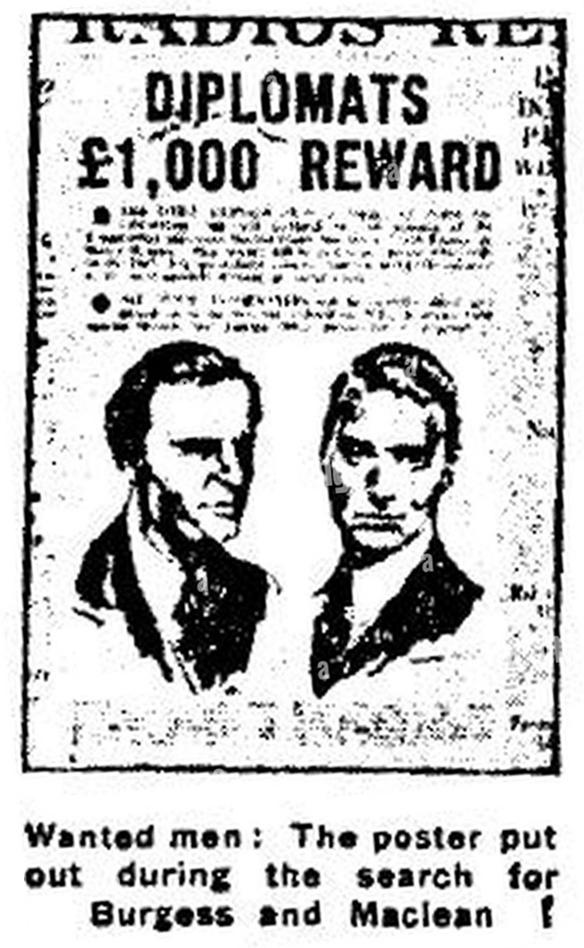
Guy Burgess was a British diplomat and Soviet agent, and a member of the Cambridge Five spy ring that operated from the mid-1930s to the early years of the Cold War era.
His defection in 1951 to the Soviet Union, with his fellow spy
Donald Maclean, led to a serious breach in Anglo-United States intelligence co-operation, and caused long-lasting disruption and demoralisation in Britain's foreign and diplomatic services.
The Foreign Office’s obsession with their sexuality which led to the introduction of harsh measures which would blight the lives of homosexuals employed in the Foreign Office and spilled over into demonisation of and witch hunts against gay men in the UK.
On 22nd of October 1953
Sir John Gielgud was convicted of “cottaging” (“persistently importuning for an immoral purpose”) in a public lavatory just off the Fulham Road. He was fined £10 and advised to consult his doctor.
Thinking that this was the end of his career, he was terrified before his next stage performance.To everybody’s astonishment and indescribable relief, the audience gave him a standing ovation. They cheered, they applauded, they shouted. The message was quite clear. The English public had always been loyal to its favourites, and this was their chance to show that they didn’t care tuppence what he had done in his private life ... they loved him and respected him dearly. It was a moment never to be forgotten by those who witnessed it.
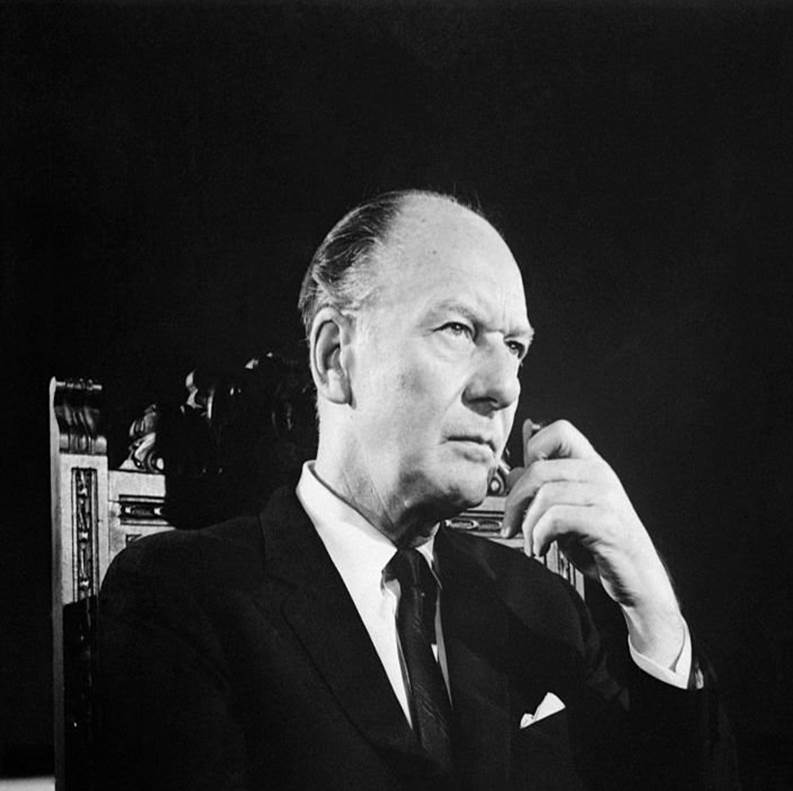
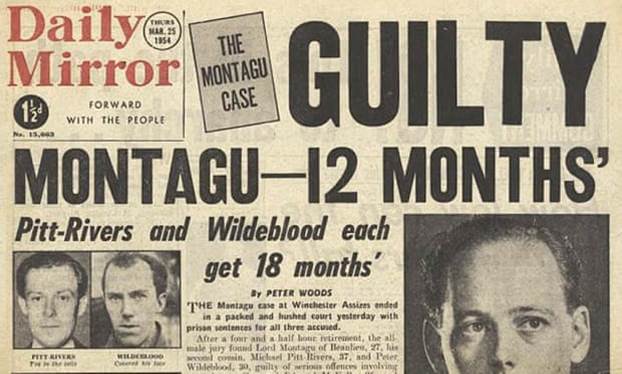
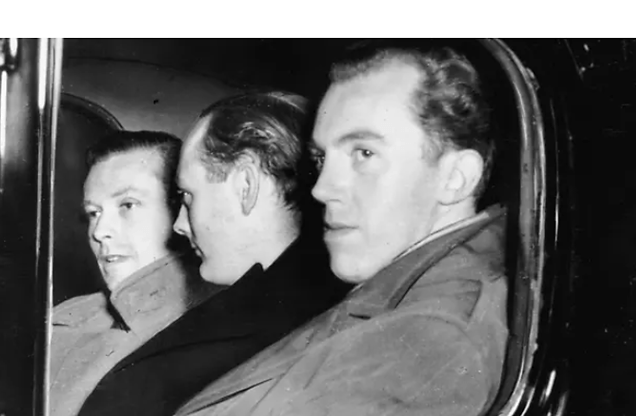
In January 1954,
Lord Montagu was arrested along with his cousin Michael Pitt-Rivers and his friend
Peter Wildeblood.
They were put on trial for performing “gross offences” and “conspiracy to incite certain male persons to commit serious offences with male persons” with two RAF servicemen during a party at Montagu’s beach hut. All three men were found guilty of “consensual homosexual offences”. Lord Montagu was sentenced to 12 months imprisonment, Pitt-Rivers and Wildeblood were sentenced to 18 months.
The Montagu trial was a catalyst which increased the public desire for law reform. This was reflected in the House of Commons when MPs including Sir Robert Boothby and Desmond Donnelly called for a Royal Commission to review the laws.
The trial brought the issues around homosexuality and the law to public attention. The Wolfenden Committee, set up within weeks of those convictions,
In the 1950, not only was homosexuality a crime, it was also viewed as an illness to be cured.
The "cures" included lobotomy, electro aversion therapy, hormone injections and chemical castration. One significant victim of this notion and these procedures was codebreaker and "father of the computer" Alan Turing.
To read about Alan Turing, click HERE.
In 1954 the Conservative government asked Sir John Wolfenden to head a committee which would examine the laws which related to prostitution and homosexuality. At that time the number of prosecutions for homosexual acts was rising rapidly, partly due to witch hunts by some police who had their own personal agendas and partly due the public outrage at the gay Cambridge spies (Burgess and Maclean) who sold state secrets to Russia.
Some of the prosecutions began to arouse public sympathy, particularly in the case of the Lord Montagu and Peter Wildeblood trials (For more information, click HERE). When Sir John Gielgud was taken to court having been arrested for cottaging, his next appearance on stage was greeted with a round of applause.
Some of the Wolfenden Committee became embarrassed by the constant references to prostitutes and homosexuals, so they decided to refer to homosexuals as "Huntleys" and prostitutes as "Palmers".
The Committee delivered its report in 1957, but the government shied away from acting on it.
20TH CENTURY 1960s
The picture, taken in 1985, shows John Clarkson. John lived in Nottingham and in 1964, at the age of 19, he was arrested because he was found to be living with another man.
A trial at Nottingham assizes followed. It was one of the last trials prior to the 1967 Sexual Offences Act which resulted in imprisonment. John was imprisoned for 2 years and his older partner for 3 years.
The trial had some extraordinary features and was described in humiliating details by local journalist and documentary maker Ray Gosling.
To read about the trial, click HERE.
After eight years of dithering and after a change of government, some MPs decided it was time to put Wolfenden's recommendations into law.
Wolfenden's committee had concluded that, though one's sexual orientation was established at an early age, "the Country" would not tolerate an age of consent below the age of "majority"- which was 21 at that time.
Many politicians felt that there would be a great negative reaction from "the working classes". In 1966, Allan Horsfall (pictured left) organised a well publicised meeting in his own area, which was a mining town and proved them wrong.
In 1967 the Sexual Offences Act was passed. It decriminalised sex between men as long as they were "Consenting male adults in private" ....... BUT
- Adult meant 21, while it was 16 for everyone else (including lesbians - who didn't exist)
- A locked hotel room wasn't private, nor was your own bedroom if a friend was staying in the west wing
- The law did not apply to Scotland or Northern Island - they had to wait until the 1980s
To see a list of the legal areas of discrimination, click HERE
To read some of the related correspondence from Nottingham Evening Post, click HERE
Below you can see a Youtube video of Allan Horsfall
Here is a Youtube video of Sir John Wolfenden talking in 1967 about the recently passed Sexual Offences Act based on the conclusions of the report of the Wolfenden Committee in the 1950s.
It may be worth mentioning that Sir John's son was gay
To go to the next Timeline, click HERE

